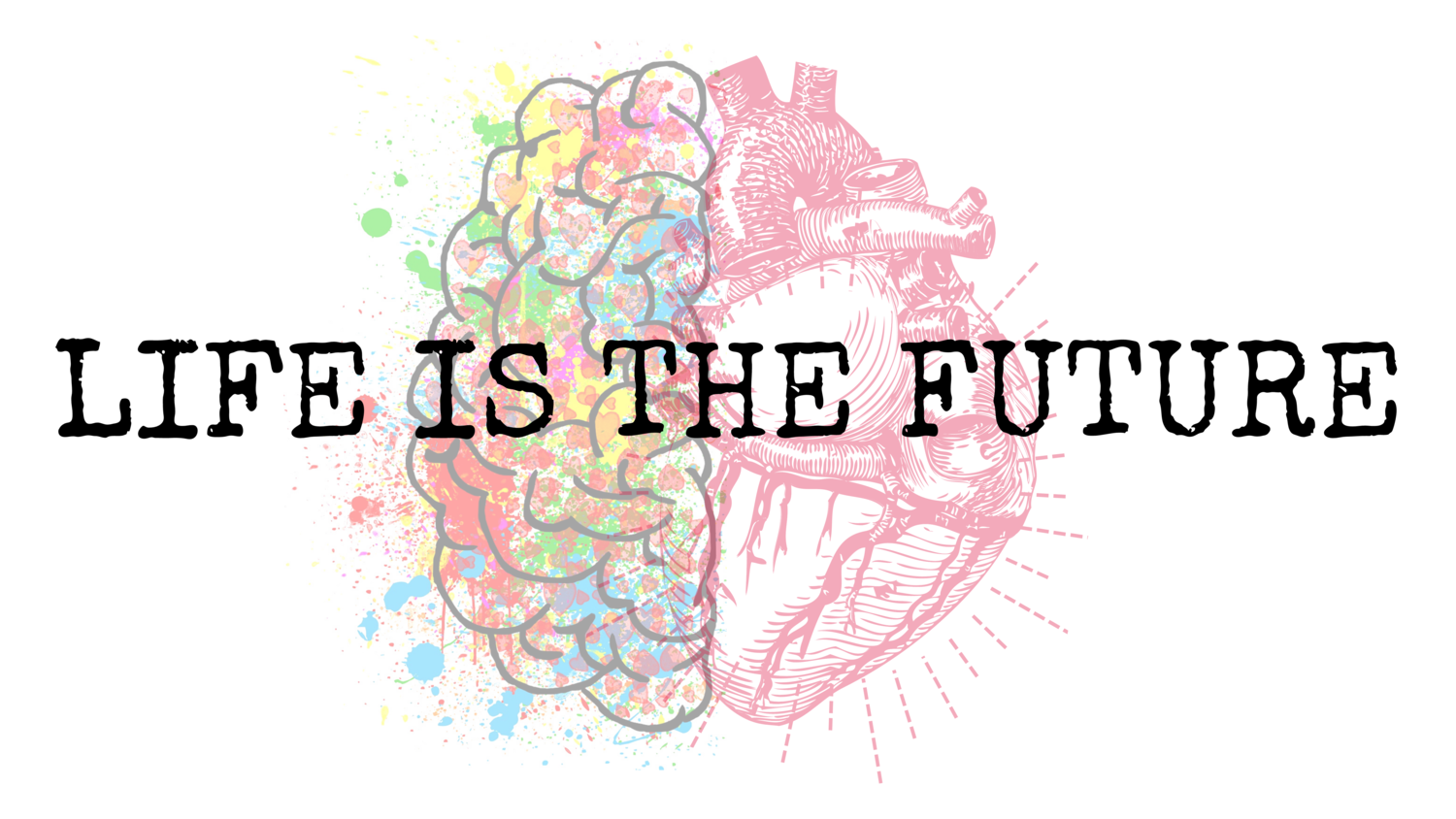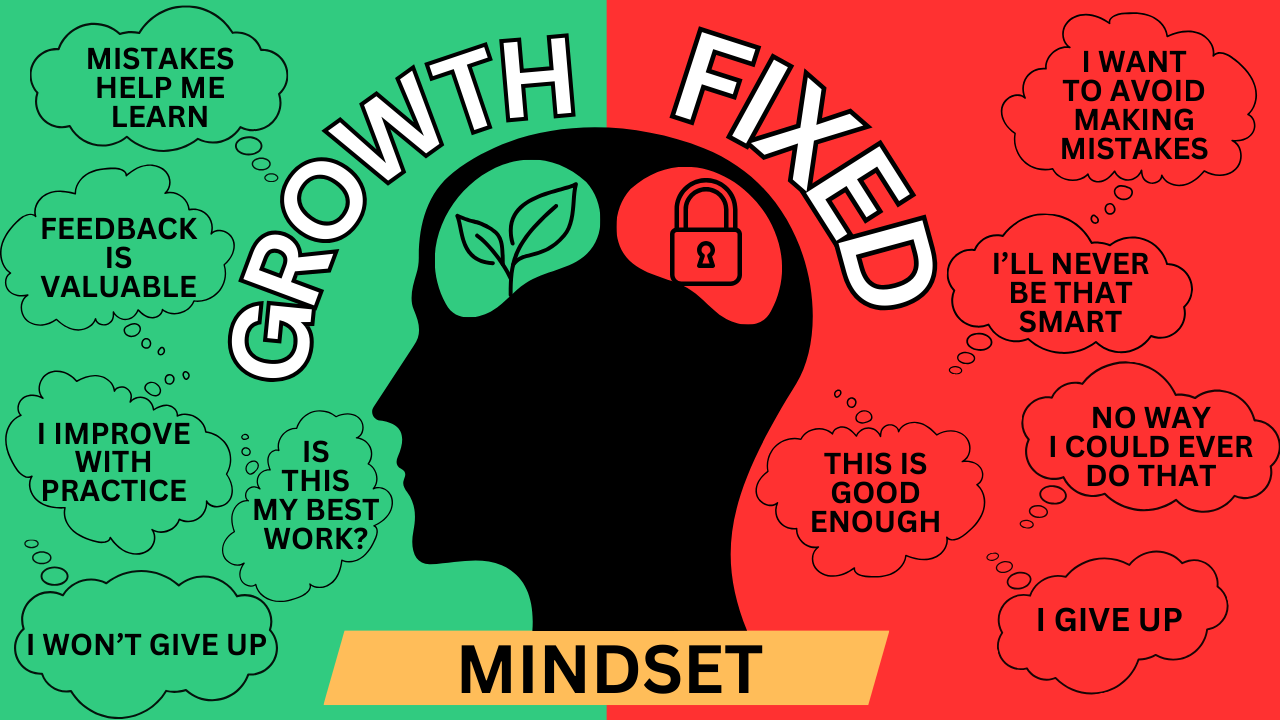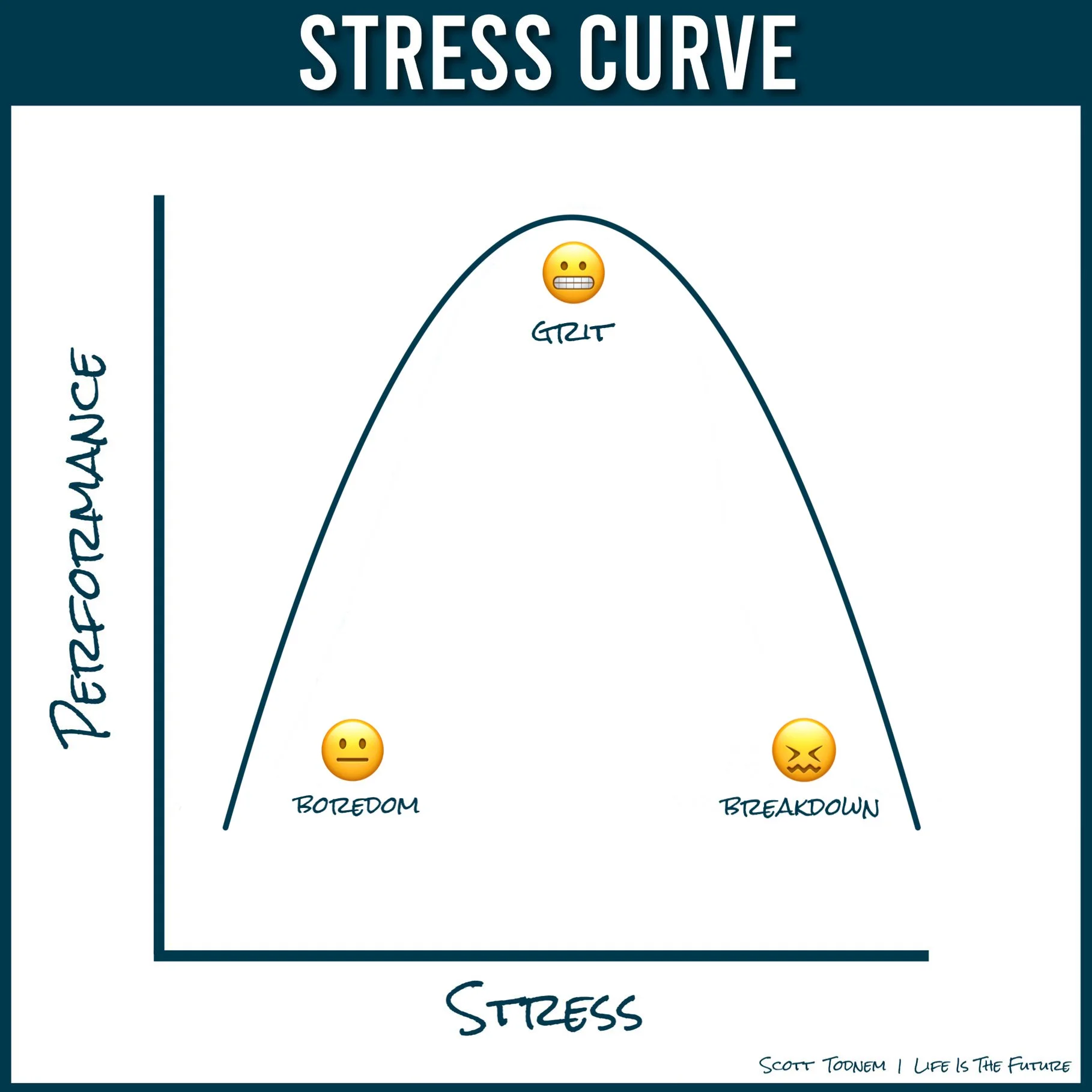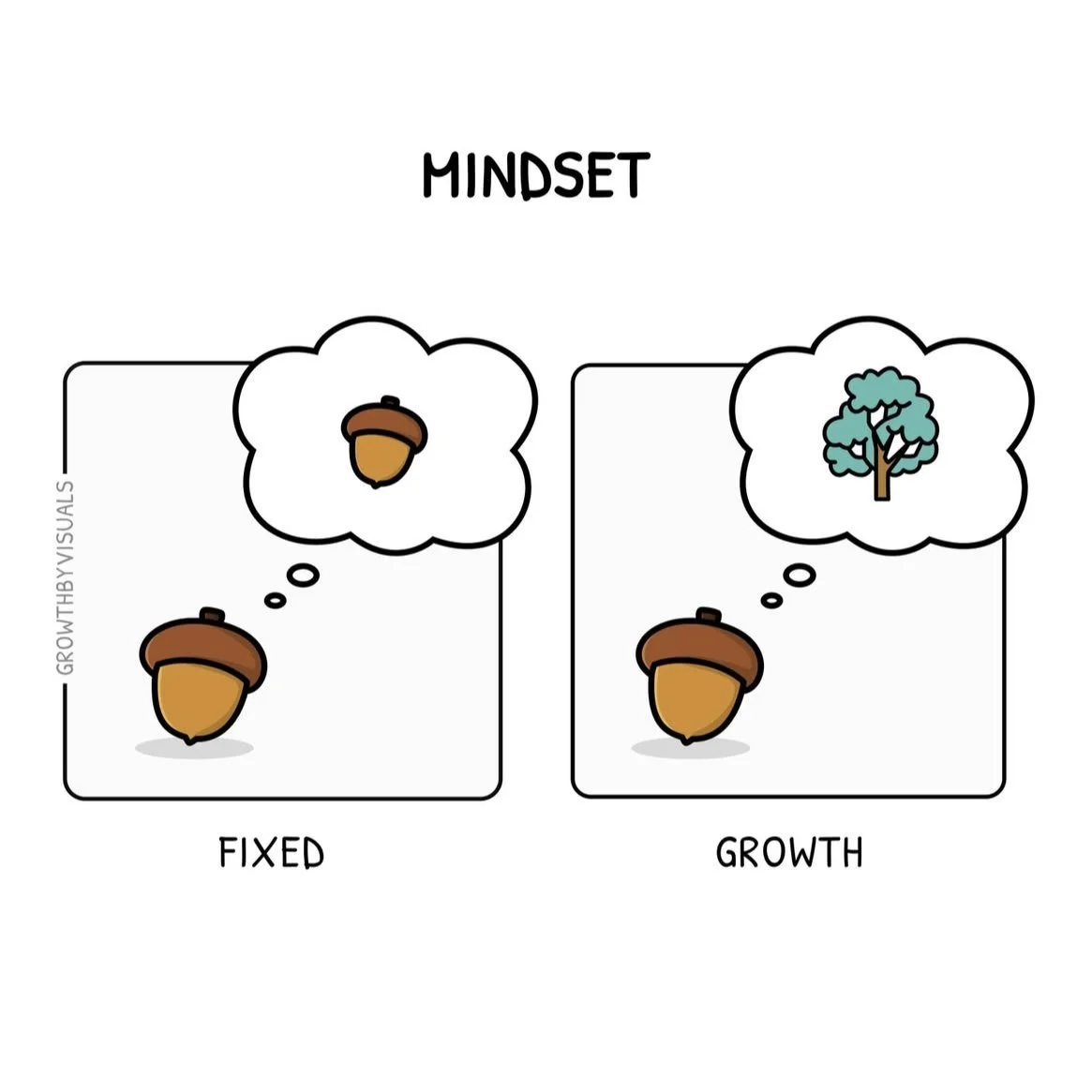The Growth Mindset Playbook
“Becoming is better than being. You have to work hardest for the things you love most.”
You can listen to this AudioBlog or watch the animated episode on YouTube or Spotify.
Have you ever caught yourself thinking, “I’m just not good at this,” or, “I’ll never get better?” Maybe it’s a tough math problem, a sport you struggle with, an instrument you just started, or a skill that just seems impossible to learn.
Here’s the truth: Your abilities aren’t set in stone. You can get better, you can improve, and your brain is wired to grow.
This is the foundation of growth mindset, a concept made famous by psychologist Dr. Carol Dweck. Even before publishing Mindset, she spent decades studying how people develop skills and knowledge, and she discovered something game-changing: What you believe about your ability to improve affects whether or not you actually do.
If you think you can grow, you will. If you think you can’t, you won’t. We’ve all heard the expression before: Whether you think you can or you think you can’t— you’re right.
So let’s break down what this means, why it matters, and how you can use a growth mindset to improve at almost anything.
Fixed vs. Growth Mindset
People tend to fall into one of two mindsets when it comes to learning:
🧱 Fixed Mindset
Believing that your intelligence, skills, and talents are unchangeable. If you’re bad at something now, you’ll always be bad at it. You either have it or you don’t.
🚀 Growth Mindset
Believing that your intelligence, skills, and talents can improve through effort, practice, and learning. If you struggle with something, it just means you haven’t mastered it yet.
Here’s a quick example. Let’s say you fail a test. A fixed mindset says, “I’m just bad at this subject.” A growth mindset says, “I didn’t prepare well enough this time, but I can improve my study habits and do better next time.”
See the difference? One shuts down learning. The other opens the door for growth.
Psychologist Dr. Jo Boaler, a leading expert on learning and education at Stanford University, has found that a growth mindset plays a crucial role in how we approach challenges— especially in areas that require repeated work. Too often, students assume they’re simply “not good at that subject.” Boaler’s research shows that when students believe their brains can improve, they actually rewire their neural pathways, making it easier to retain new knowledge.
This means that struggle isn’t a sign of ultimate failure— it’s a sign that your brain is growing.
The Science Behind Growth
This isn’t just a feel-good idea. Your brain is built for learning, and experts like Dr. Angela Duckworth, author of Grit, have found that perseverance and effort are stronger predictors of success than talent alone.
Think about it: The best athletes, musicians, and artists aren’t just born talented. They put in the work. They mess up, they adjust, they keep going. And because they believe they can improve, they actually do.
Even mistakes are part of the process. Every time you fail at something, your brain strengthens its neural connections, helping you learn from experience.
Neuroscientist Dr. Mary Helen Immordino-Yang takes it even further— her research shows that emotions play a key role in how we learn. When we feel inspired, challenged, or even frustrated, our brains release chemicals that enhance memory and problem-solving. That means if you stay engaged and push through challenges, you’re literally training your brain to become stronger.
Think back to something you once struggled with but eventually improved at. Maybe it was riding a bike, learning a new game, or even reading fluently. At one point, those things felt tough, right? But over time, they became easier because you stuck with them. That’s how learning works!
So the next time you struggle with something new, remind yourself: This frustration means my brain is growing. This is okay. This is life.
How to Build a Growth Mindset
The good news? Growth mindset is a skill you can practice. And it starts with embracing challenges.
A fixed mindset avoids challenges because they feel like proof of failure. But failures aren’t permanent. A growth mindset sees challenges as opportunities to improve. Next time something feels too hard, remind yourself difficult doesn’t mean impossible. It just means you’re learning.
Here are some specifics to building a growth mindset:
Change Your Self-Talk
The way you talk to yourself matters. Words shape beliefs, and beliefs shape actions. Speak to yourself like you would a friend— encouraging, not discouraging.Catch yourself when you think or say things like:
❌ “I can’t do this,” and reframe it into, “I can’t do this… yet.”
❌ “I’ll never be good at this,” and reframe it into, “I need more practice.”
❌ “I always fail at this,” and reframe it into, “Mistakes help me learn.”
Fail Forward
Failure isn’t the opposite of success— it’s part of it. Every mistake teaches you something new. Even the most successful people in the world have failed repeatedly. The difference? They kept going.Many of us know the story of Michael Jordan, one of the greatest basketball players of all time, who struggled at a younger age to make his high school varsity team. (The myth is he was cut completely, but the truth is he was playing, just at a lower level.) Instead of quitting, he used that setback as motivation to train harder. His growth mindset turned a setback into a comeback.
Instead of shutting down after a failure, ask yourself:
🔹 “What can I learn from this?”
🔹 “What can I do differently next time?”
🔹 “What’s one small step I can take to improve?”
Celebrate Effort, Not Just Results
If you only focus on winning or being the best, you’ll miss the progress you’re making along the way. Instead, celebrate effort as well as earnings. Instead of saying, “I’m so smart,” try saying, “I worked hard on that.” When you reward effort instead of natural ability, you build confidence that will carry you through future challenges.🏆 “I studied harder for this test than I did last time.”
🏆 “I kept going even when it was tough.”
🏆 “I’m improving, even if I’m not perfect yet.”
The Big Takeaway
Your brain is capable of amazing things. Case in point, the way you think about your ability to grow directly impacts how much you actually grow.
When we talk growth mindset, we’re also focusing on the effort required to train your brain. This is all linked to stress management as well— understand that eustress (the “good,” beneficial type of stress) is different than distress (the “bad,” harmful amount of stress). As we pursue any endeavor, some stress in inherent. It’s a prerequisite that helps guide us toward maximum performance and success. Life is going to be stressful; in fact, it’s the challenges themselves that help with positive change. Be willing to put in the hard work.
So start training your mindset:
✔️ Replace “I can’t” with “I can’t yet.”
✔️ See challenges as opportunities, not obstacles.
✔️ Use mistakes as learning tools.
✔️ Focus on progress, not perfection.
When you shift into a growth mindset, you open the door to success in anything you do.
Resources
For more motivation and learning, here are some resources on my AMAZON STOREFRONT I recommend checking out.
Mindset by Carol Dweck
Grit by Angela Duckworth
The Obstacle Is the Way by Ryan Holiday
The High 5 Habit by Mel Robbins
And more…
YouTube.com/MrTodnem Facebook.com/MrTodnem Instagram.com/ScottAmpersand




